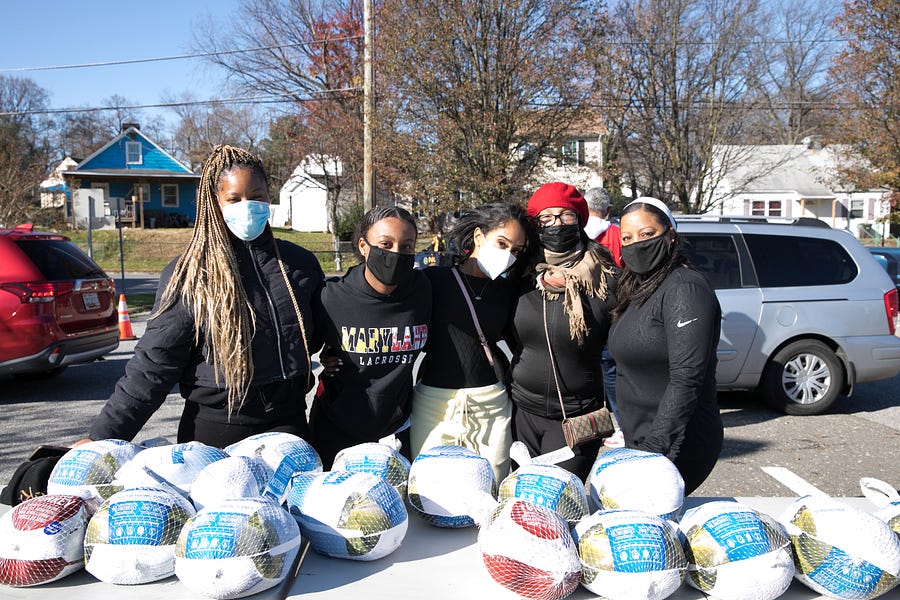In a year in which millions of Americans won’t be celebrating Thanksgiving with their loved ones, it’s tempting to skip out on the simple act of being thankful. A muted holiday season feels like the final blow in a year defined by a pandemic, racial strife, wildfires, and a president who won’t admit he lost an election. But take five minutes in honor of Thanksgiving to refill your glass with some optimism and joy. There is plenty to decry at home and in the world, but there’s much to rejoice in.
At the turn of the 21st century, 27.7 percent of the globe survived on $1.90 a day or less. Now that number is 9.4 percent—and would have been 7.9 percent were it not for the pandemic. Global life expectancy is also up from 67.1 to 73.2; adult literacy from a hair under 80 percent to 86.7 percent. And child mortality has dropped dramatically over the last 20 years from 9.82 million annual deaths worldwide to 5.2 million. In the year 2000, our own per capita income in America was $42,970; it’s now $56,663. In 2000, 54.2 percent of eligible Americans voted; in 2020 that number is projected to be 66.8 percent. Sure, it took Donald J. Trump to bring out millions of new voters (both for and against his presidency), but that is the beauty of democracy. The people voted, and their choice will be heard.
Yes, there was democratic backsliding in the world, and Russia, China, and Iran are working to ensure there will be more. But in the last year, crowds of demonstrators have overthrown their governments in Lebanon, Iraq, Sudan, and further afield. In Iran, they have come out again and again to demand accountability in the face of a terrifying regime. The power of the people is a cause for rejoicing. It may not always have the desired effect, but the courage to stand and demand better governance is to be celebrated.
Where there was bad news—and there was plenty—the United States often stood with the oppressed; in Hong Kong, Xinjiang, Iran, Venezuela, and Ukraine especially. Notwithstanding the doubts of many and the disapprobation of Team Trump, the reality is that the United States stood tall for values that matter to people. We worry, rightly, about a growing indifference to the problems of the world. Many Americans feel left behind by the integration of global markets and trade agreements that render their work less meaningful, or abolish their jobs entirely.
But in Washington, a government that was elected by these Americans and many more nonetheless did its part for freedom. There was progress in one of the globe’s most intractable conflicts: peace between Israel and the United Arab Emirates, Israel and Bahrain, Israel, and Sudan. And there is perhaps peace on the horizon between Israel, Oman, and Saudi Arabia. Many have tried to write off these peace agreements, viewing them through the prism of their dislike for Trump and their antipathy to the Netanyahu government in Israel. But the reality is that these grand diplomatic achievements deserve praise; so too do those shouldering the risk of abandoning decades of conflict, a difficult feat in a region where the tone is often set by Sunni and Shiite extremists. Countries do not transition from war and embrace peace—a true, warm peace—with a sworn enemy without difficulty.
On the homefront, living in the wealthiest nation on earth did not protect Americans from the ravages—physical and economic—of the pandemic. There were failings at every level of government, but it’s worth noting how often private institutions stepped up. The nonprofit Perfect Strangers anted up free delivery of supplies to those at risk of COVID-19—more than 150,000 meals over the last six months to the elderly, immunocompromised, and infirm all over the nation. Nashville Street Barbers donates haircuts to the homeless. God’s Garage helps single mothers, widows and wives of deployed military members with car repairs. Dr. Jim Withers of Pittsburgh treats the homeless where they live, searching under bridges, in shelters—wherever he can. His mission has grown into the life-changing Operation Safety Net. These are just a few examples of good deeds being carried out in similar fashion in small towns, big cities, and everywhere in between.
Nor was Americans’ kindness and compassion reserved to compatriots. Some took special care to reach people who sought refuge here: Tanabel, which bills itself as a “refugee powered food and events” company, employs rock-star cooking queens among refugee women, and then provides the meals they prepare to the community. In the U.K., Refugees at Home does what it says, welcoming refugees into family homes, not simply for a meal, but for a place to live, a bridge to a more settled life, a welcome all the more meaningful because it is so personal, and so generous.
The world feels like a worse place this year. We cannot travel, cannot see family, and we’re potentially looking at another round of lockdowns and isolation just as the cold and gloom of winter sets in. But neither the world nor its people can be reduced to one simple story. There are millions who are freer, millions who are richer, millions who are healthier, millions more who are at peace. There are good people giving in every way they can. We don’t need a festive occasion to remind us to thank them, nor to remind ourselves that really, truly, there are better days ahead.
Photograph by Brian Stukes/Getty Images.






Please note that we at The Dispatch hold ourselves, our work, and our commenters to a higher standard than other places on the internet. We welcome comments that foster genuine debate or discussion—including comments critical of us or our work—but responses that include ad hominem attacks on fellow Dispatch members or are intended to stoke fear and anger may be moderated.
With your membership, you only have the ability to comment on The Morning Dispatch articles. Consider upgrading to join the conversation everywhere.